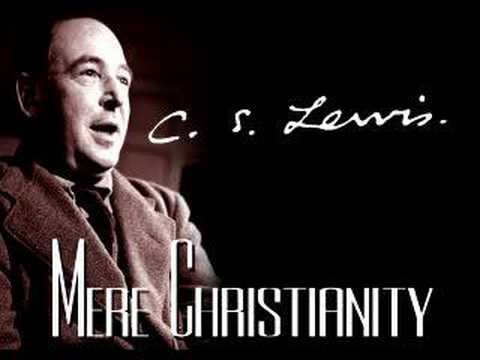Sixty years ago, London publisher Geoffrey Bles first released a revision of three sets of radio talks by an Oxford literature don. The book was called Mere Christianity, and there was nothing “mere” about it. A somewhat disjointed set of C. S. Lewis’s views on a wide range of theological, philosophical, and ethical matters, the book became the most important and effective defense of the Christian faith in its century.
As Mere Christianity (henceforth “MC”) goes into its seventh decade of publishing success, rivaled still by no other apologetic, it’s worth taking a look at its unlikely success.
Why It Shouldn’t Have Worked
The first reason why MC should not have worked is rather basic: It doesn’t deliver what its title promises. It does not do even what John Stott’s classic Basic Christianity does—namely, outline at least the basics of evangelicalism’s understanding of the gospel. Given the title’s own promise and Lewis’s express intent of offering “mere Christianity,” we get something substantially less than that, as I think Puritan pastor Richard Baxter, from whom the phrase comes, would affirm.
Furthermore, MC offers not only less than “MC,” but also more: Lewis’s own opinions about domestic relationships, marriage, and gender; and his particular take on the vexed question of God and time (which, in my view, has powerfully perpetuated Christian Platonism and its “timeless God” among many people who have never read Plato). The danger here is the danger that resides also in C. I. Scofield’s dispensationalist notes to his famous Reference Bible. (I recognize that this is perhaps the first time anyone has claimed that Lewis and Scofield are peas in a pod, but they are both remarkable publishing successes.) The danger is that the secondary and idiosyncratic are bundled with the primary and universal, and taken in together by the trusting reader as being “simply Christian.”
A second reason why MC should not have worked is that it is, after all, an extended set of philosophical and theological arguments. Even worse, it is front-loaded with its densest material, a reworking of the moral argument for the existence of God: briefly, all human beings have a strong sense of moral obligation that cannot be explained on purely naturalistic grounds and instead requires a God very much like the Christian God to explain properly. This argument’s distinguished heritage goes back through Immanuel Kant to Thomas Aquinas and beyond. It is among the most powerful and controversial of apologetics.
Hard as it is to believe that contemporary readers will sit still for such things, it strains plausibility to contend that modern people a few decades ago would enjoy following such an argument listening to a crackly radio, as MC was first introduced. And while lots of people didn’t, and wouldn’t, find such exposition interesting, lots of people apparently did—with enough positive response to have Lewis return to the BBC for the subsequent sections that made up the eventual book.
Sixty years on, however, we all know that people nowadays don’t want such arguments. Our audiences demand snappy stories and quick changes of subject, in a kind of literary or homiletical MTV.
Read HERE the entire article.
John G. Stackhouse Jr. holds the Sangwoo Youtong Chee Chair of Theology and Culture at Regent College, Vancouver.
